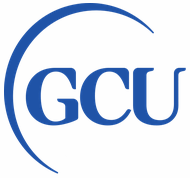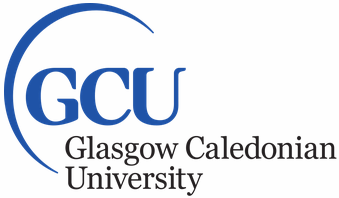Last updated on December 14th, 2024
The MUrCS consortium is built up by a number of partners from different sectors.
Core Partners

Glasgow Caledonian University (UK) is the overall programme coordinator and leads the Management stream.
Research underpinning MUrCS emanates from the Sustainable Urban Environment Research Group (SUE-RG), a large group of researchers within the Department of Construction and Surveying, ranked among top 20 in the UK for its research impact. Led by Prof Rohinton Emmanuel with international research interests in energy efficiency and sustainable urban development, SUE-RG spans areas including building performance, indoor environment, carbon management and sustainability.
The SUE-RG has longstanding expertise in urban sustainability with special emphasis on urban heat island research and mitigatory approaches to reduce its overheating potential. As a result, the group secured funding from the Glasgow Clyde Valley Green Network Partnership (GCVGNP) to explore the potential of green infrastructure to tackle the overheating problem likely in the near future, due to climate change augmented by urban warming in the Glasgow and Clyde Valley region. Additionally, the group has recently secured funding from the European Commission to develop green infrastructure assessment protocols for urban green spaces across the EU.
Contact person for GCU and the consortium: Professor Rohinton Emmanuel

LAB University of Applied Sciences (Finland) leads the Planning stream.
LAB (former LAMK) has well established and extensive connections with local and regional working life partners providing real-world examples to its students. International relationships, projects and exchanges have been steadily increasing, leading to better opportunities in international education and research. Focus areas include, clean and dynamic environment, well-being and regenerative growth, design and smart industries.
The Faculty of Technology has increased the volume of environmental R&D projects, especially in the area of sustainable urban environments, so that they form the majority of faculty’s external funding. This provides opportunities to both Bachelor and Master programmes to play a significant role. Dr Eeva Aarrevaara is the programme leader of the Master programme in Urban Sustainability. A key strength of LAB team is the connections with practice-based projects, R&D projects, education and thesis work in the following areas: urban and communicative planning, protection of cultural environments, energy efficiency of built environment, sources and use of renewable energy, recycling and reuse of materials, waste treatment and management of storm-water in urban settings as well as modern education technology.
Contact person for LAB: Dr Eeva Aarrevaara
![]()
University of Huelva (Spain) leads the Science/Technology stream.
UHU has many years of experience in Environmental Science & Technology related studies, offering BSc, MSc & PhD programs. UHU brings together significant assets to the MUrCS Programme, with a wide range of skills and expertise in Environmental Impact Assessment (EIA), Strategic Environmental Assessment (SEA), Geodesy and remote sensing, renewable energy technologies, urban soils remediation, urban acoustics and Health Impact Assessment (HIA) are part of our contribution to MUrCS. UHU staff within the departments of Agroforestry, Earth Science, Electrical & Thermal Engineering and Integrated Science are responsible for delivering strong educational & research programmes to tackle environmental problems.
UHU research centres such as CITES for Technology, Energy & Sustainability, RENSMA for Natural Resources Health & Environment, and CEAFMC for Physics, Math & Computation, bring to the students the possibility to experience real life examples of environmental issues and the approaches to deal with them.
Contact person for UHU: Professor José Antonio Dueñas Díaz
![]()
University of Applied Sciences Dresden (Germany) leads the Environmental Engineering modules.
HTW Dresden’s eight faculties offer about 50 study programs. Worldwide international partnerships include universities in Eastern Europe, the Mediterranean and Africa.
The region of Dresden has to cope with urban heat, droughts, extreme rainfalls and river floods. Climate-related aspects of the natural and built environment, in particular soil, water and vegetation, are addressed from the disciplines of soil and water bioengineering, civil engineering and landscape development. How can Nature-based solutions serve to enhance resilience of ecosystem services and urban quality of life?
HTW Dresden’s MUrCS team are based in the Faculties of Agriculture/Environment/Chemistry and the Faculty of Civil Engineering. Good connections with State Agencies, the City of Dresden, consultants and research institutions provide orientation for student projects, thesis work and internships. An integrated work programme offers MUrCS students insights in site analysis, planning instruments and management of Green and Blue Infrastructure and its contributions to urban sustainability.
Contact person: Professor Henning Günther
HTWS partnership will end after 2026.
Associated Partners
Following partners are associated with the core team, and provide resources such as teachers, thesis ideas and supervision, study visits, internships etc:
Academic Partners
- University of Moratuwa, Moratuwa, Sri Lanka
- North West University, Potchefstoom, South Africa
- University of Sao Paolo, Sao Paulo, Brazil
- Akdeniz University, Antalya, Turkey
- Ryukoku University, Kyoto, Japan
- International University of Andalucia, Seville, Spain
- Leibniz-Institut für Ökologische Raumentwicklung e.V., Dresden, Germany
Institutional Partners
- Glasgow City Council, Glasgow, UK
- Province Authority of Huelva, Huelva, Spain
- City of Lahti, Lahti, Finland
- National Health Service Greater Glasgow and Clyde, Glasgow, UK
- Scottish Natural Heritage, Inverness, UK
- Landeshauptstadt Dresden, Dresden, Germany
- Paijat-Hämeen Region, Lahti, Finland
Industry Partners
- Ramboll Finland OY, Espoo, Finland
- Atlantic Copper SLU, Huelva, Spain
- Biomatrix Water Solutions Ltd, Forres, UK



